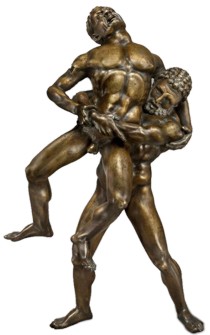 Classical mythology has always fascinated me, not because I believe in any sort of pagan pantheon, but because it’s evidence of the enduring power of storytelling. Something in the human psyche craves narrative, especially the epic kind. Mythological stories have woven through generations and cultures, survived wars and the erosion of wind, sand and water. They survive longer than pyramids and buildings, are more impregnable than fortresses and citadels. Storytelling is our species’ genetic memory. All it took in the ancient world was a group of people, evocative language and a warm campfire to keep it going.
Classical mythology has always fascinated me, not because I believe in any sort of pagan pantheon, but because it’s evidence of the enduring power of storytelling. Something in the human psyche craves narrative, especially the epic kind. Mythological stories have woven through generations and cultures, survived wars and the erosion of wind, sand and water. They survive longer than pyramids and buildings, are more impregnable than fortresses and citadels. Storytelling is our species’ genetic memory. All it took in the ancient world was a group of people, evocative language and a warm campfire to keep it going.
Take Hercules. Here in 2018, the era of the internet, smart phones and artificial intelligence, references to this powerful mythological story still keep showing up around me. Hercules (or Heracles in Greek) came from the ancient Greeks, a culture that began nearly five millennia ago, then he remained popular through the Etruscan and Roman civilizations, which began more than seven hundred years before Christ. The character of Hercules must strike a common chord. He came up against incredible odds, suffering at the hands of Hera (Zeus’s jealous Olympian wife) and later Eurystheus the king, who set the hero out on his famous twelve labors as penance.
It’s the story of those labors that endures, even into our modern culture. Just a few weeks ago my stepmother told me her horses had been inside so much this winter, her barn was like the Augean stables, a reference to Hercules’s fifth labor, which was to clean them out. The word “herculean” is used in English to refer to efforts above and beyond normal, and Hollywood is still making movies about the Greek hero. He was an Olympian gladiator, a superhero from the ancient world.
Which warms me to my topic, using mythological stories in modern storytelling. I stumbled across a little side story that took place during the eleventh labor of Hercules. He ran into Antaeus on his way to the Garden of Hesperides to collect some golden apples, and the two of them engaged in a wrestling match. It seems Antaeus drew his strength from touching the earth (his mother being Gaia, the goddess of the earth), which is fascinating in itself because formalized wrestling has Greek origins, won by pinning someone to the floor. Nevertheless, Hercules defeated Antaeus by lifting him into the air until his power was depleted. Then he crushed him.
I jumped on that story as a metaphor in my novel. First of all, it’s a wrestling match, and my protagonist is wrestling with the past. And to defeat it, he needs to lift his memories up and expose them to air and light, thereby draining them of their power. The memories themselves are of his cousin’s death from falling into a salt mine ventilation shaft, which is, of course, a conduit deep into the earth, the source of Antaeus’s strength. So I hauled an ancient story out of mothballs, part of a myth that still resonates with people today, and framed it as a metaphor around a modern struggle.
Many writers tap into ancient myths. If you’re writing a story that deals with the human psyche, explore ancient mythology and read about the titanic struggles of Greek heroes and mortals trying to define and explain the hardships of a brutal world. A lot of nuggets are hiding there. Your task is to find them and bring them back, against all odds.
